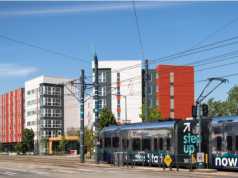City Rolls Out New Program to Boost Building Energy Efficiency
Seattle, WA – May 11, 2011 – (RealEstateRama) — The City of Seattle sent letters to more than 800 large commercial property owners and managers today informing them about a new citywide program designed to help owners and managers assess and improve building energy efficiency and spur the market for building energy retrofits.
“Seattle’s buildings provide one of the greatest opportunities to generate energy savings and boost economic development for the city. This new program will help building owners take a key step toward increasing building energy efficiency, which, in turn, helps lower operating costs, makes buildings more competitive and creates good local jobs,” said Department of Planning and Development Director Diane Sugimura.
According to the U.S. Department of Energy, buildings consume more than 70 percent of the electricity generated in the U.S. and could be made 30 to 50 percent more energy efficient with currently available products and services. But many property owners and managers don’t know how well or poorly their buildings use energy or how their building’s energy performance compares to similar buildings. Also, consumers have no way to compare the energy performance of buildings they hope to buy or rent.
Under the new program, all commercial and multifamily residential buildings larger than 10,000 sq. ft. will be measured or “benchmarked,” for their energy performance using the U.S. EPA’s ENERGY STAR Portfolio Manager. Building energy ratings will also be provided to the City and to prospective buyers, tenants and lenders upon request during real estate transactions. The program first applies this fall to nonresidential buildings 50,000 sq. ft. or larger and extends to both nonresidential and multifamily residential buildings 10,000 sq. ft. or larger next April 2012.
Energy benchmarking is becoming a common practice among many large property owners and managers working to lower building operating costs and make buildings more competitive on the real estate market.
Managers of the historic Dexter Horton building in downtown Seattle have been benchmarking and rating the building’s energy performance for several years.
“The more aware you are of your building’s energy use and work to rein in energy waste today, the better positioned you’ll be in the future as energy costs continue to rise. By benchmarking the Dexter Horton building and making energy efficiency improvements, we are able to compete with buildings that are 60 years younger,” said Andrea Benvenuto of CB Richard Ellis, the company that manages the building.
Numerous studies show that energy-efficient buildings – in particular those with green certifications – out-compete inefficient buildings in terms of higher rental and sales prices and building occupancy levels.
“Our clients are looking for energy-efficient buildings because they understand these properties cost less to own and operate, hold their value, and make for better and more productive working environments. Having access to building energy information helps prospective buyers and tenants find energy-efficient buildings and reduces their exposure to the risks of owning or leasing in a less efficient building” said Dave Low, Director of Sustainability Practices, Kidder Mathews.
For more information about the program, visit the City’s Energy Benchmarking and Reporting Ordinance website: http://seattle.gov/dpd/Energybenchmarking or email: energybenchmarking (at) seattle (dot) gov.
###
Interview Sources:
Jayson Antonoff, Sustainable Infrastructure & Energy / Climate Change Policy Advisor, City of Seattle Department of Planning & Development: 206.386.9791; jayson.antonoff (at) seattle (dot) gov
Antonoff can speak to the City’s new benchmarking and energy reporting ordinance.
Dave Low, LEEP AP, Director of Sustainability Practices, Kidder Mathews: 206.398.2283, 206.612.0784 (cell); dlow (at) kiddermathews (dot) com
Kidder Mathews is a full service commercial real estate firm that has benchmarked a number of buildings in their portfolio, Low can speak to the benefits of benchmarking.
Kim Drury, Senior Policy Associate, NW Energy Coalition: 206.621.0094; kim (at) nwenergy (dot) org
Drury is experienced in energy efficiency policy and implementation and can speak to the environmental and economic benefits of having more energy efficient buildings. Drury was a stakeholder in the development of this program.
For more information on other city/state benchmarking programs, click here.
—
Erin Laetz
Program Coordinator
Resource Media
325 Pacific, 3rd Floor
San Francisco, CA 94111
T 415.397.5000 x309
M 303.349.7488
erin (at) resource-media (dot) org
http://resource-media.org
Contact:
Rebecca Baker:
206.615.1171
Rebecca.baker (at) seattle (dot) gov




